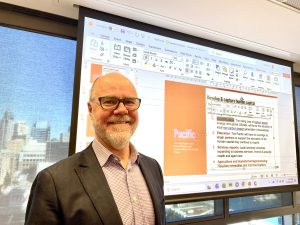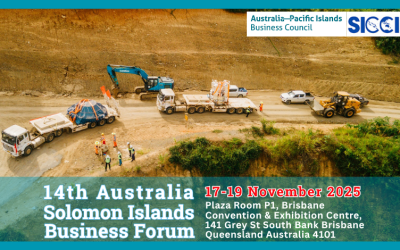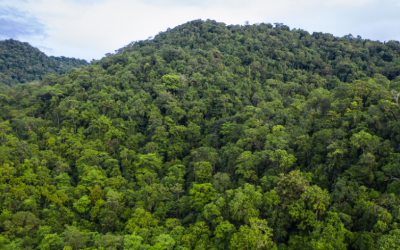
Westpac Director and Senior Economist Justin Smirk.
Westpac Director and Senior Economist Justin Smirk addressed the Executive Committee members of the Australia Fiji and Australia Pacific Islands Business Councils and invited guests in Sydney last month. The executive committee meetings were hosted at the Westpac offices.
Here is a summary from his presentation on Papua New Guinea’s economic outlook:
Papua New Guinea is grappling with several persistent challenges that are hindering the growth and stability of its business environment. According to the economic presentation, the top factors affecting businesses in Papua New Guinea include a significant shortage of expertise and skills, persistent foreign exchange difficulties, concerns about security and law and order, unreliable utilities, and a lack of government capacity. These issues create a challenging operating environment, making it difficult for businesses to thrive.
The shortage of expertise and skills is particularly pronounced, reflecting broader educational and training deficiencies in the country. This gap impacts all sectors, limiting the ability of businesses to expand and innovate. Additionally, foreign exchange shortages continue to be a major hurdle, affecting the ability of businesses to import necessary goods and services, which in turn hampers their operations and growth prospects.
Security concerns and unreliable utilities further compound these difficulties. Businesses face risks related to law and order, which can increase operational costs and deter investment. Moreover, frequent disruptions in essential services like electricity and water supply create additional challenges for day-to-day operations.
Despite these obstacles, the presentation highlights that there are still promising opportunities in Papua New Guinea, especially in sectors like food production and processing. However, realising these opportunities will require significant improvements in the logistics infrastructure and broader regulatory environment. The presentation suggests that more aggressive and targeted policies are needed to address these systemic issues and unlock PNG’s economic potential.
Looking ahead, while there was a bounce in business expectations in 2023, the outlook for 2024 indicates some easing. However, the long-term opportunities remain if Papua New Guinea can effectively tackle its infrastructural and regulatory challenges. Enhancing human capital development and fostering regional cooperation are also seen as critical steps towards overcoming these hurdles and driving sustainable economic growth in PNG. These efforts could help transform PNG’s business landscape, making it more attractive for both local and international investors.



